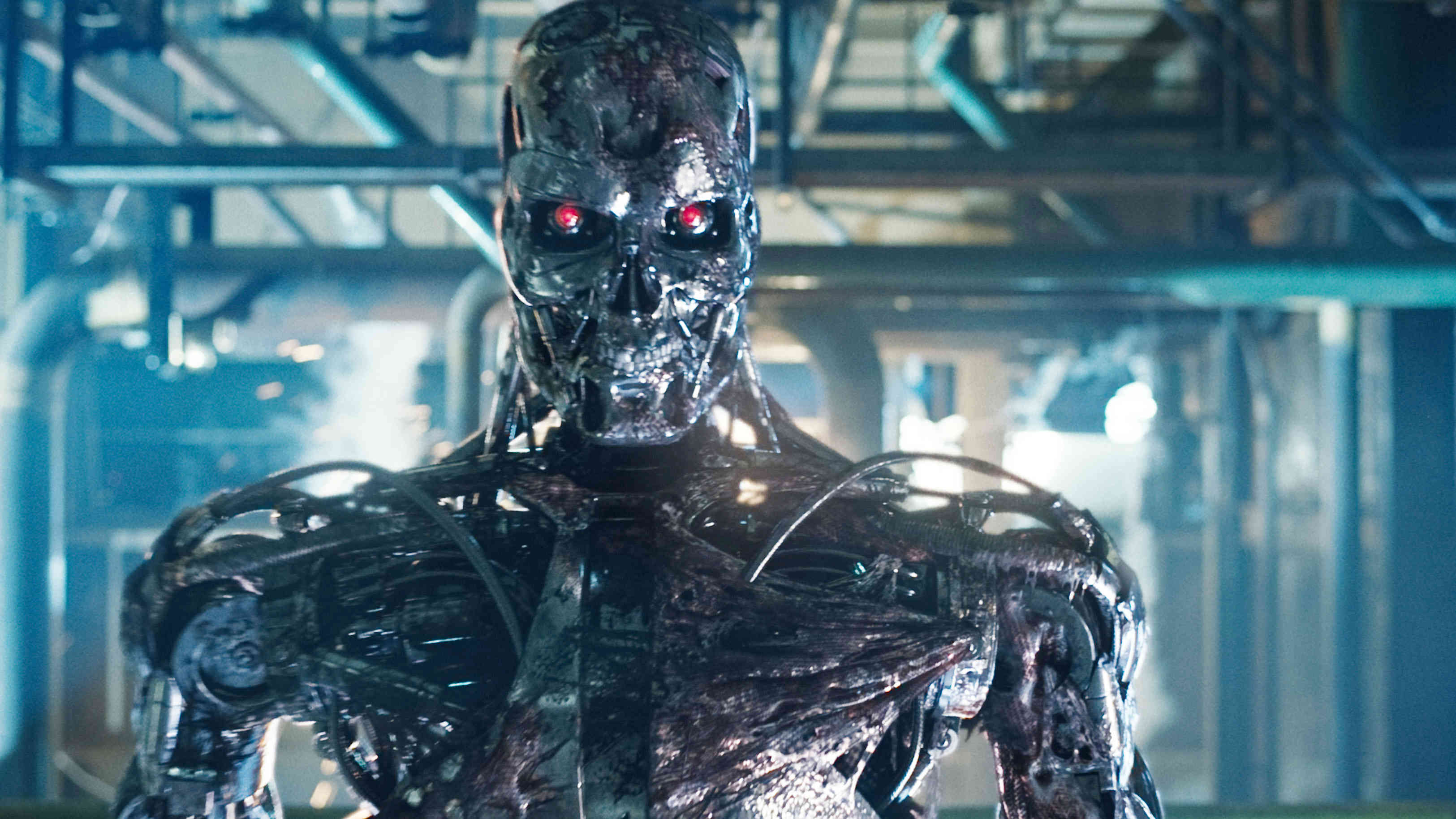Week 3: Art and Robotics
Technological
advancement has put humanity in position to destroy the world if we misuse our
inventions. Nuclear weapons can intentionally destroy us while carbon emissions
can cause global warming that will slowly and unintentionally put an end to
human society as we know it. Our fear of the consequences of our technological
achievements can be seen in the depiction of robots in books and movies.

Science
fiction is filled with stories of robots turning against their creators ("Do We Need Asimov's Laws?"). Isaac Asimov was a
science fiction writer that wrote extensively on robotics. He is often
associated with the Laws of Robotics that he first created in his short story “Runaround”
(“Why Asimov's Three Laws Of Robotics Can't
Protect Us”). The Asimov's Laws of Robotics state that robots must not harm humans, obey humans, and ensure their own self-preservation, in that order of importance.
One of
Asimov’s most famous stories was I, Robot,
a story collection released in 1950 ("Isaac Asimov
Biography."). The stories in this collection focused on the
interactions between humans and robots when robots. Elements from this
collection was later used in a 2004 movie also titled I, Robot which told the story of a futuristic society in which
robots found a way to bypass the Laws of Robotics. This movie captured the fear
that human invention can lead to our destruction.
Science
fiction has also explored the moral implications of creating intelligent
robots. As time goes on humans can program increasingly more complicated
algorithms into machines ("Artificial
Intelligence: How Algorithms Make Systems Smart."). This raises a
few complicated questions. Will there be a point when humanity can create a
robot with a “soul”? If humanity can do this, will humanity do this
accidentally or on purpose? In 2012, game developer Quantic Dream released a
tech demo for the PS3 ("Heavy Rain Developer
Unleashes Short Film 'Kara'"). The demo was graphically impressive
and it also had a story that addressed some of the implications of creating a
robot with a “soul”. The demo, named "Kara" after the robot in it, focused on a
personal assistant robot that accidentally develops a mind beyond what has been
programmed into her, to the shock of the engineer running final checks on her. Stories
like those told through "Kara" shows society’s struggle with the fact that
sometime very soon, humanity might play God and start creating robots with a
“soul”.
“soul”.
Works Cited
Deangelis, Stephen F.
"Artificial Intelligence: How Algorithms Make Systems Smart." Wired.com.
Conde Nast Digital, n.d. Web. 20 Apr. 2015.
<http://www.wired.com/2014/09/artificial-intelligence-algorithms-2/>.
"Do We Need Asimov's
Laws?" Technology Review. MIT, 16 May 2014. Web. 20 Apr. 2015.
<http://www.technologyreview.com/view/527336/do-we-need-asimovs-laws/>.
Dvorsky, George. "Why
Asimov's Three Laws Of Robotics Can't Protect Us." Io9. N.p.,
3 Mar. 2014. Web. 20 Apr. 2015.
<http://io9.com/why-asimovs-three-laws-of-robotics-cant-protect-us-1553665410>.
"Heavy Rain Developer
Unleashes Short Film 'Kara'" IGN, 7 Mar. 2012. Web. 20 Apr. 2015.
<http://www.ign.com/articles/2012/03/07/heavy-rain-developer-unleashes-short-film-kara>.
"Isaac Asimov
Biography." Bio.com. A&E Networks Television, n.d. Web. 20
Apr. 2015. <http://www.biography.com/people/isaac-asimov-9190737>.

Hi Ryan,
ReplyDeleteI used the same picture from Terminator in my post! I thought that movie is a great cinematic representation of the material from this week's lecture. I also very much enjoyed the Kara video you posted at the end of your blog. It really made me think--ever since I read Asimov's I, Robot in the twelfth grade, I have wondered what the future would hold as technology and robotics continue to progress. As we get closer to having self-driving cars and the relying on robots to simplify our lives (thanks Siri) it seems like the future is not so distant after all. I, too, wonder what will happen if humans do take on this God-like role in the creation of sentient mechanical beings. I guess we'll find out? Thank you for this thought-provoking post.
-Victoria